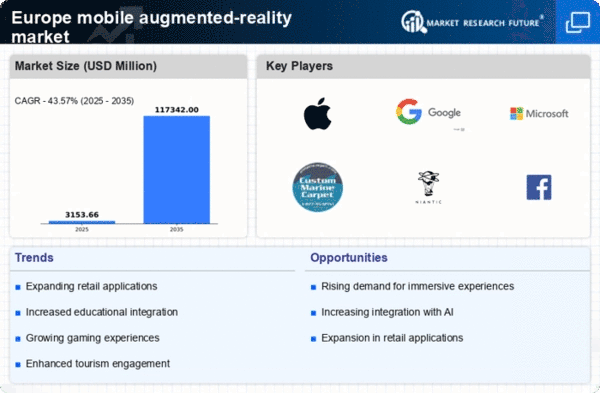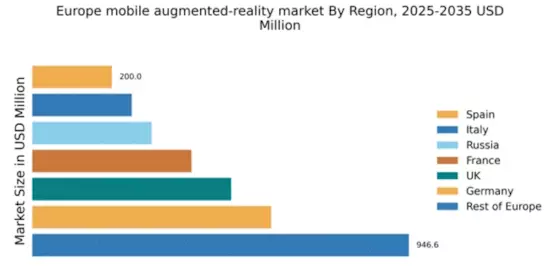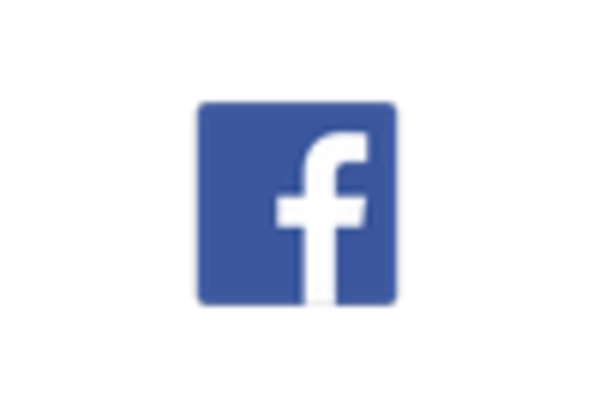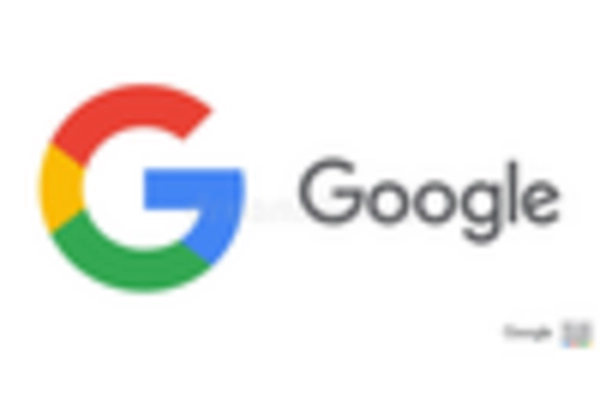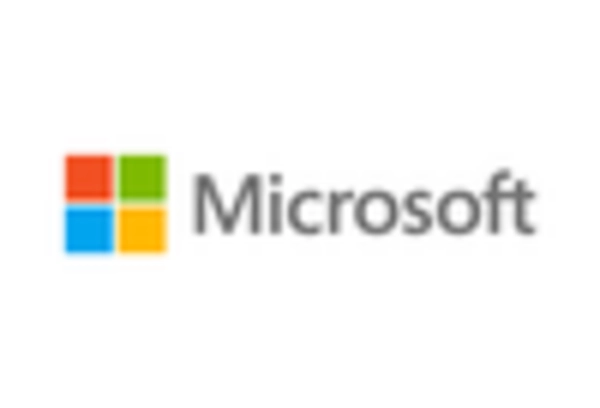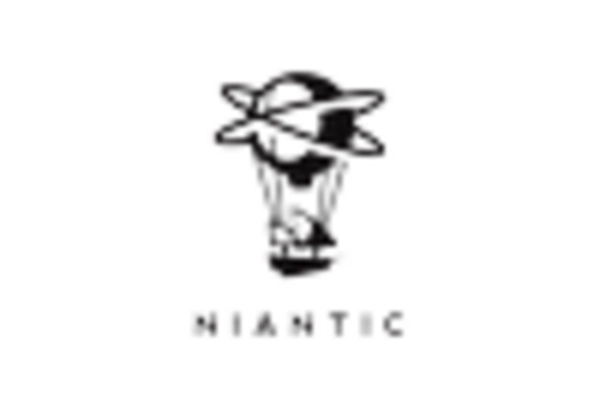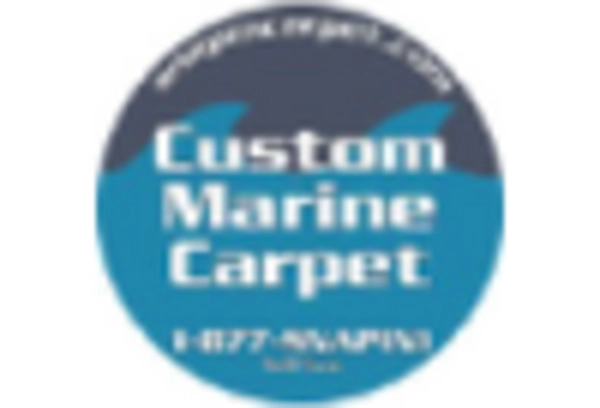Growth of E-commerce and Online Shopping
The surge in e-commerce and online shopping in Europe is significantly influencing the mobile augmented-reality market. As consumers increasingly prefer online shopping, retailers are adopting augmented-reality solutions to bridge the gap between physical and digital experiences. For instance, augmented-reality applications allow customers to visualize how products will look in their homes before making a purchase. This capability is particularly appealing in sectors such as furniture and fashion. Reports suggest that the integration of augmented-reality in e-commerce could lead to a 30% increase in conversion rates, highlighting its potential impact on sales. Consequently, the growth of e-commerce is likely to drive further adoption of augmented-reality technologies in the mobile augmented-reality market in Europe.
Technological Advancements in Mobile Devices
The rapid evolution of mobile devices is a crucial driver for the mobile augmented-reality market in Europe. With the introduction of high-performance processors, enhanced graphics capabilities, and improved sensors, mobile devices are becoming increasingly capable of supporting sophisticated augmented-reality applications. For instance, the integration of 5G technology is expected to enhance data transmission speeds, thereby facilitating real-time augmented-reality experiences. As of 2025, it is estimated that over 70% of mobile devices in Europe will support augmented-reality functionalities, indicating a significant shift in consumer accessibility. This technological progression not only enhances user experience but also encourages developers to create innovative applications, thereby expanding the mobile augmented-reality market in Europe.
Increased Investment in Research and Development
Investment in research and development is a pivotal driver for the mobile augmented-reality market in Europe. Companies are allocating substantial resources to explore new applications and improve existing technologies. This focus on innovation is evident in the growing number of startups and established firms dedicated to augmented-reality solutions. In 2025, it is projected that R&D spending in the augmented-reality sector will exceed €1 billion in Europe, reflecting a commitment to advancing the technology. Such investments not only foster innovation but also enhance the competitive landscape, encouraging collaboration between tech companies and academic institutions. This dynamic environment is likely to accelerate the growth of the mobile augmented-reality market in Europe.
Consumer Preference for Enhanced User Experiences
Consumer preferences are shifting towards enhanced user experiences, which is a significant driver for the mobile augmented-reality market in Europe. As users seek more engaging and interactive content, augmented-reality applications are becoming increasingly popular across various sectors, including retail, education, and entertainment. Surveys indicate that approximately 75% of European consumers express interest in using augmented-reality applications for a more immersive experience. This growing demand is prompting businesses to invest in augmented-reality technologies to meet consumer expectations. As a result, the mobile augmented-reality market in Europe is likely to expand as companies strive to deliver innovative solutions that cater to the evolving preferences of their customers.
Rising Demand for Interactive Marketing Solutions
In the competitive landscape of European marketing, brands are increasingly seeking innovative ways to engage consumers. The mobile augmented-reality market is positioned to meet this demand by offering interactive marketing solutions that enhance customer experiences. For example, brands are utilizing augmented-reality applications to create immersive advertisements that allow consumers to visualize products in their own environments. This trend is reflected in a survey indicating that 60% of marketers in Europe believe augmented-reality enhances customer engagement. As businesses recognize the potential of augmented-reality to drive sales and brand loyalty, investment in this technology is likely to increase, further propelling the mobile augmented-reality market in Europe.


